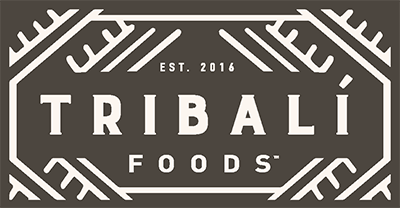
When it comes to choosing what to eat, there are so many factors to consider:
- A company’s farming philosophy
- Diet and lifestyle choices like intermittent fasting or perhaps Paleo, Keto or Whole30
- Ingredients
- Nutritional profile
- Sourcing methods
Besides considering all of these important elements, another big question to consider is whether to consume beef or opt for plant-based options instead. (Is anyone else’s head spinning?)
Although we love plants and know the importance of including them in our daily diets, we also know the significance of including a variety of other foods in our diets as well, like beef.
Over the years, eating beef has earned a bad reputation, but now, Diana Rodgers has written a new book “The Sacred Cow.” This book takes a deep dive into why we should not fear eating beef, but rather, how we can make more mindful decisions. By making more mindful choices, we can positively impact our environment, food systems and our overall health, all while enjoying the taste (and benefits) of eating beef.
The Demonization of Beef
As a brand that offers beef options, we often hear consumers say they no longer eat red meat because it’s bad for their health. On the contrary, eating meat, like beef, is not inherently bad for you. Rather, it’s the quality of the beef that matters most. When it comes to eating meat, like beef, it’s critical to take into consideration the quality of your meat.
The quality of beef is what determines which health benefits (or health detriments) show up in our overall health, which is why we vigorously search our communities for protein sources that are humanely raised and sustainably sourced. Our team only works with sustainable farmers and ranchers we can truly trust to prioritize animal welfare. We strongly believe happy animals are healthy animals and healthy animals provide the highest quality protein. High quality food choices can help you thrive physically, mentally, emotionally and spiritually. It’s not just us that can benefit from beef, so can our environments through a process called regenerative agriculture.
Supporting Regenerative Agriculture
When choosing high quality beef, it is important to look for brands and companies that support regenerative agriculture. Regenerative agriculture takes a holistic approach to farming that aims to restore and revive the health of our soil and ecosystems through various practices that tend to the land themselves. It improves biodiversity, increases carbon capture and restores degraded soil to create long-lasting environmental benefits.
Unfortunately, many modern agricultural practices have degraded and destroyed the health of our soil, which is why regenerative agriculture seeks to reverse this damage. That means forgoing the use of herbicides and pesticides by protecting crops naturally, planting cover crops to prevent soil erosion, promoting methods like conservation tillage and crop rotation and using compost instead of synthetic fertilizers.
Regenerative agriculture practices allow Mother Nature to heal herself without the use of human interference through synthetic chemicals, which is why it is quickly becoming a beacon of hope for those focused on the health of our planet. Rodgers even says, “This is our opportunity to acknowledge the power of regenerative agriculture to heal ourselves and our soil from the industrial food system.”
How You Can Enjoy Meat More Mindfully
Besides picking up a copy of Rodger’s newest book, “The Sacred Cow,” here are a few other ways we can all enjoy meat more mindfully:
-
Avoid misleading labels. When shopping for meat, avoid misleading labels. Simultaneously, stay away from farmed produced meat that is focused on maximum output and profit. For more information, visit FACT.
-
Choose ethical producers. Choose farmers, producers and ranchers who enable natural behavior, promote good health and animal welfare and provide animals with a natural diet. This means purchasing your meats from local, smaller scale farms and ranches as well as independent butchers, farmers markets, farm shops and higher standard producers. Do your research before making a final purchase and don’t be afraid to ask the farmers and ranchers questions.
- American Grassfed Association (AGA)
- Animal Welfare Approved (AWA)
- Certified Grassfed by AWA
- Global Animal Partnership (GAP)
- Humane Farm Animal Care
- 100% Grass Fed & Finished
- Free-Range
-
ABF (Antibiotic Free)
-
Purchase accordingly. Meat is a precious resource, so start treating it as such. This means purchasing only the meat you need and using all of it.
- Research. Research brands and companies to learn more about their growing and farming practices before purchasing from them and support companies that are building a better future for our planet.
To learn more about how you can enjoy meat more mindfully, pick up a copy of Diana Rodger’s new book, “The Sacred Cow,” available online and at your local retailers.

HELLO@TRIBALIFOODS.COM >
your mind — we’re glad to help!
hello@tribalifoods.com
your mind — we’re glad to help!
hello@tribalifoods.com








